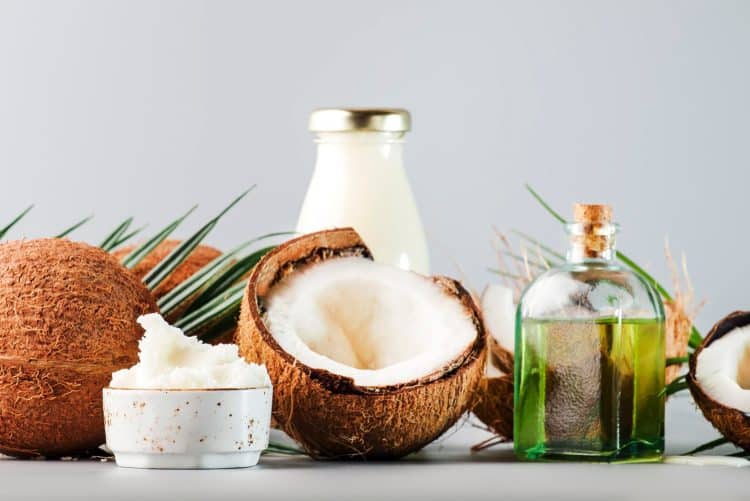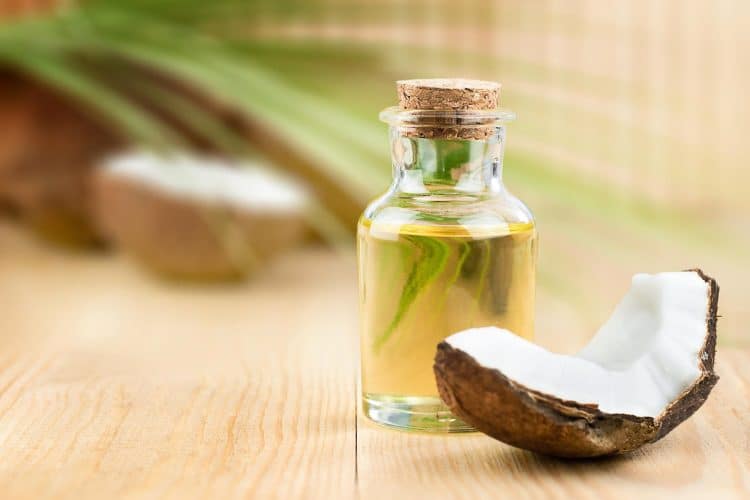There is an ongoing debate in health circles about the role of MCT oil and whether it can break a fast. There are some calories in MCT oil, but they are absorbed differently compared to other fats. Many health-conscious people use MCT oil to help keep them satiated during fasting.
MCT oil does not stimulate insulin production in your body; hence, its fat-burning capacity remains unchanged. Read this detailed guide to make a more informed decision about including MCT oil in your intermittent fasting (IF) regimen.
Calculate Your Autophagy Timeline
Find out exactly when your body enters autophagy based on your unique profile, diet, and fasting protocol.
Calculate My Autophagy Window →Key Takeaway
MCT oil is processed differently from other long-chain acids in the body. It bypasses the digestive process and there is little opportunity to get absorbed as fat. So MCT oils do not technically break a fast.
Fasting: How Does it Work?
Before diving into MCT oil, one needs to understand how fasting works. Fasting has been practiced for ages. Initially, it was mainly done for spiritual and religious purposes. Over recent years, fasting has gained the attention of neurobiological scientists and has become an alternative weight loss method. [1]
During fasting, you typically fast for at least 12 hours to several days. This gives your body time and opportunity to focus on other equally essential bodily processes like detoxification and cell repair.
Intermittent fasting has become very popular in recent years, and there are a lot of diets you can find online that are based on the IF principle of alternate time windows for fasting and eating. It is perfect for controlling blood sugar and helps accelerate weight loss. Intermittent fasting can also help prevent cardiovascular issues. [2]
All About MCT Oil
For people following keto diets, MCT oil is a popular supplement. MCT oil or Medium Chain Triglycerides have a 6-12 carbon atom core and are metabolized differently than other fats.
Some of the MCT oils include:
- Caproic acid (C6)
- Caprylic acid (C8)
- Capric acid (C10)
- Lauric acid (C12)
Out of these, capric acid and caprylic acid are most efficiently and quickly used by our bodies. If you can get your hands on some tender coconuts, there is nothing like it, as they are a great source of lauric acid, another MCT oil. You should always choose organically manufactured MCT oil over products with fillers.
Relation Between Intermittent Fasting and MCT Oil
MCT oil is unique, found only in palm and coconut trees, and further developed in laboratories to get the final product. Medium-chain triglycerides have caproic, capric, lauric, and caprylic acids, which are absorbed in a jiffy by the bloodstream. They travel to the liver, where they are broken down and converted into ketones.
Ketones act as an alternative energy source for your body. During IF, your body utilizes ketones instead of glucose to produce energy, boosting the fat-burning process. MCT oils can help you get into a state of ketosis by enhancing ketone production.
Can MCT Oil Break a Fast?
Consuming an MCT oil during a fast offers many benefits. It is essentially an energy booster packed in a couple of teaspoons. MCT oil can keep you satiated, too. [3]
Fasting can take a toll on your body and brain and make you feel like quitting, especially in the early fasting days. You should consume energy-boosting food sources during your fasting periods, and MCT oil is just that.
A tablespoon of MCT oil typically has 14 grams of fat and 115 calories, which makes most people put it on the “foods to avoid while fasting” list. However, you have to consider that by keeping your body in ketosis, MCT oils enhance the benefits of a fast and get you closer to your weight loss goals.
You will not find a unanimous view on whether MCT oil breaks or does not break an intermittent fast. Remember: As a high-calorie supplement, you do not take MCT oil as a meal alternative. It’s more about taking advantage of the fact that it keeps you feeling satiated.
MCT oil is processed differently from other long-chain acids in the body. The MCT oil almost bypasses the digestive process, and there is little opportunity to get absorbed as fat. Hence, some may say that MCT oils do not technically break a fast.
Advantages of MCT Oil
MCT Oil has a vast range of benefits, and you should know what these are so you can make an informed choice regarding your diet.
1. Helps You Stay Satiated During The Fasting Window
Many fasters find it challenging to go 12 hours without snacking. If you are one of them and need help, consider MCT oil. Each tablespoon has 115 calories, and when consumed just before the fasting period, it will keep you feeling full for quite some time. Plus, MCT supplements can help keep fatigue at bay.
You can take MCT oil if you follow a fat fast where healthy fats are allowed while fasting. It can be through tea or coffee infusion and will help you get through your fasting window without feeling tired or hungry.
2. Helps With Weight Loss
You will get some good benefits if you include MCT oil in your diet. It helps with weight loss because it keeps you satiated for a long time. This means that you can fast for longer periods.
MCT oil helps with weight loss because it keeps you satiated for a long time. If you tend to overeat after ending a fast, MCT oil could help fix this issue. Some believe that having MCT oil in breakfast makes them eat less lunch. MCT is a trusted companion where you have to watch weight and prevent obesity. [4]
3. Supports Gut Health
Unlike other long-chain triglycerides, MCT oil is absorbed immediately in the blood and processed in the liver faster than other fats. The digestive process of MCT releases energy, which is utilized by the body.
Using MCT oil will promote the growth of good gut bacteria, which can help with weight loss. However, depending on your body composition, you could have some side effects from MCT oil, like diarrhea and stomach irritation.
To work around this, begin with a small dose of MCT oil and work your way up to the regular dose.
4. Improves Blood Sugar Levels
MCT Oil can assist you in checking your blood sugar levels. MCT oil could help improve sensitivity and normalize insulin levels 5]. If you want to use MCT oil to manage your insulin levels, please talk to your doctor first.
5. Benefits Overall Health
Using MCT Oil will be beneficial for your overall health because of its palliative effects on chronic diseases like:
- Inflammation
- High cholesterol
- Body mass index
- Blood pressure
Research has shown that MCT, flaxseed oil, and phytosterols can help people reduce their total cholesterol. [5] Thus, MCT oil is good for the heart.
How To Use MCT Oil While Intermittent Fasting
Start with small doses keeping in mind that you could face side effects. 1-2 teaspoons of MCT oil can be considered a fair starting point. You can add it to drinks like tea or bulletproof coffee.
A traditional fast will give you more benefits compared to a fat fast. This is because fat fasts can potentially hamper the autophagy process, where the body detoxifies itself from toxins. However, fat fasting has other benefits, and MCT’s calories will assist you in going for long hours without food.
You can find MCT in oil, powder, or pill form. Of these, oil happens to be the purest form, and it is arguably the most popular choice. However, some find it messy to work with and instead prefer MCT pills or powder.
Remember: Do not compromise on the purity of an MCT oil. High-quality MCT oils will not have artificial sweeteners, fillers, or other ingredients that compromise efficacy.
Pro Tip: Blend MCT oil with coconut oil before use.
When Should I Take MCT Oil?
Most studies have found the optimum MCT oil dosage between one and five teaspoons [6]. You should work your way up from the minimum dosage to the optimum dose, depending on how your body responds to it.
Begin with 1-2 teaspoons of MCT oil, gradually easing into the optimal dose. Watch for adverse reactions like bloating, an upset stomach, cramping, and diarrhea.
The morning is the best time to consume MCT oil. It will give you an energy boost right at the start of your day. Plus, it can help you continue your fast.
Learn more about fasting
FAQs
Does MCT oil put one into ketosis?
MCT is converted into ketones, which are produced from the body’s fat breakdown when your carb intake is low. Using MCT oil in a keto diet is a good idea as it can boost your dieting results.
Can I have bulletproof coffee while fasting?
Yes, you can undoubtedly have bulletproof coffee while fasting. It is can help keep you satiated for longer.
Does MCT oil burn belly fat?
MCTs induce thermogenesis, otherwise known as heat generation, in the body. This helps dieters burn stored fat and lose weight. Consuming MCTs tend to increase energy expenditure in overweight me
What happens when MCT is consumed on an empty stomach?
Consuming MCT oil on an empty stomach can cause cramping or an upset stomach. MCT oil has a low burning point, which should be kept in mind if you use it for cooking.
Wrapping Up
So, will your fast be broken with MCT oil? The answer depends on the individual and how many calories they can consume during a fasting phase. However, consuming MCT oil in controlled amounts will not decrease the benefits of fasting.
As long as you monitor your calorie intake, MCT will not hijack your fasting plans. MCT oil, in fact, can contribute to excellent metabolic health, with its primary features being the production of ketones, a characteristic burst of energy, and hunger-fighting ability. You would do well if you have this item in your kitchen.
References
Fitness Volt is committed to providing our readers with science-based information. We use only credible and peer-reviewed sources to support the information we share in our articles.
- Phillips, Matthew C. L. “Fasting as a Therapy in Neurological Disease.” PubMed Central (PMC), 17 Oct. 2019
- Allaf, Mohammed, et al. “Intermittent Fasting for the Prevention of Cardiovascular Disease.” PubMed Central (PMC), 29 Jan. 2021
- Maher, Tyler, et al. “Food Intake and Satiety Response After Medium-Chain Triglycerides Ingested as Solid or Liquid.” PubMed Central (PMC), 17 July 2019
- Thomas, Dylan D., et al. “Effects of Medium Chain Triglycerides Supplementation on Insulin Sensitivity and Beta Cell Function: A Feasibility Study.” PubMed Central (PMC), 23 Dec. 2019
- “Phytosterols Mixed With Medium-chain Triglycerides and High-oleic Canola Oil Decrease Plasma Lipids in Overweight Men – PubMed.” PubMed, 1 Mar. 2006
- Shcherbakova, Ksenia, et al. “Supplementation of Regular Diet With Medium-Chain Triglycerides for Procognitive Effects: A Narrative Review.” PubMed Central (PMC), 15 July 2022
Tip: If you're signed in to Google, tap Follow.













